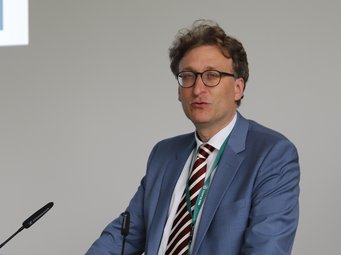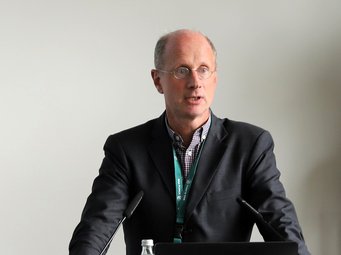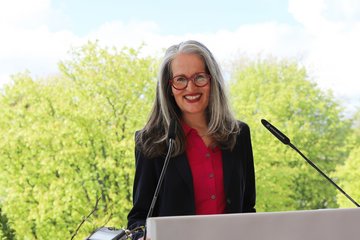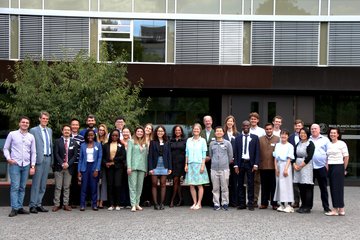
Foreign law in the courts
Conference
- Start: Jun 16, 2023
- End: Jun 17, 2023
- Location: Max Planck Institute for Comparative and International Private Law
Foreign law in the courts: Twenty-first century theory and practice of producing expert opinions on foreign law
When litigation involves transnational elements, German judges are often required to decide according to foreign rules of law. They have the authority to engage expert assistance to help them ascertain what that law is, and when they apply foreign law, they must proceed the same as a judge of the respective country’s courts would. That is the theory, anyway. The practical reality, borne out by many years of experience, is that these easily stated instructions are very difficult to carry out. On 16–17 June 2023, around fifty legal scholars and practitioners met in Hamburg to trade notes about the role of expert opinions on foreign law in twenty-first century litigation.
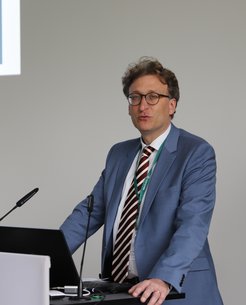
„The need to ascertain foreign law and interpret it and apply it has been coming up more and more frequently now for decades, in lockstep with the growth of complex international relationships.“
– Jan Peter Schmidt –
The Institute has been producing expert opinions on foreign private law since its founding in 1926. It has perennially been one of the ways in which the expertise developed at the Institute serves the public through basic research into laws and legal systems around the world. Today, the Centre of Expertise for the Application of Foreign Law, directed by Jan Peter Schmidt, is responsible for disseminating this knowledge
Growing demand
“The need to ascertain foreign law and interpret it and apply it has been coming up more and more frequently now for decades, in lockstep with the growth of complex international relationships”, Schmidt says. The Institute itself is staffed with experts on Islamic law, Turkish law, Russian law, Chinese law, and Japanese law as well as on various European and historically English common-law jurisdictions. Their expert opinions can aid judges who have to rule on transnational cases. The Institute is under no obligation to render an expert opinion; commissions are only accepted on a permissive basis if the subject matter is related to one of the Institute’ s areas of research.
Practical lessons
“Older issues of foreign law have been resolved or are rarely relevant. For example, whether to treat foreign law as a matter of law or as a fact to be proven, or when German law is applicable instead, or when a flawed application of law constitutes reversible error”, says Ralf Michaels, director at the Institute. He and Jan Peter Schmidt were the principal initiators of the conference. “New problematic areas have opened up. What should be done about the high caseloads? What has changed, now that foreign law is much more easily accessible? We wanted to engage with these topics practically and theoretically”.
The Internet, modern translation tools, and the German-language literature on foreign law have all made it much easier than it used to be for courts to take judicial notice of foreign law or at least to arrive at an approximation of it. Beyond that, courts can attempt to motivate litigants to get involved. But usually, in more complex cases or where the law of a less accessible jurisdiction is indicated, there is still no way around obtaining an expert opinion.
A combined perspective
The practical component of the expert opinions conference consisted of a workshop dedicated to formulating a set of guidelines for courts, experts, and litigants on ascertaining and applying foreign law in German litigation. Prior to the conference, an internal working group at the Institute, led by Ralf Michaels and Jan Peter Schmidt, had prepared a draft of such guidelines. Now many legal practitioners and especially judges attended the workshop, along with legal scholars, to share their different perspectives. The resulting guidelines were finalized in the wake of the conference and made publicly available online and in hardcopy in the form of a small brochure. The hope is that the guidelines will help achieve greater uniformity and better-functioning procedures for ascertaining and applying foreign law.

„New problematic areas have opened up. What should be done about the high caseloads? What has changed, now that foreign law is much more easily accessible? We wanted to engage with these topics practically and theoretically.“
– Ralf Michaels –
The academic portion of the conference reviewed the historical foundations and legal theory before turning to a detailed examination of various parts of the process. Topics included how to delineate the respective roles and responsibilities of judge and expert, segueing between foreign substantive law and domestic procedural rules, and the appropriate minimal standards of accuracy and completeness when ascertaining foreign law. There was also discussion of how to better harness the knowledge contained in existing expert opinions for regular consultation by practitioners.
Ralf Michaels and Jan Peter Schmidt both felt very positively about the conference and believed that it had more than accomplished its stated goals of understanding the status quo, accumulating practical wisdom, and finding opportunities to fine-tune the existing system. The conference papers are slated to be published together in a forthcoming volume to accompany the Hamburg Guidelines.
Image: © Max Planck Institute for Comparative and International Private Law / Johanna Detering
